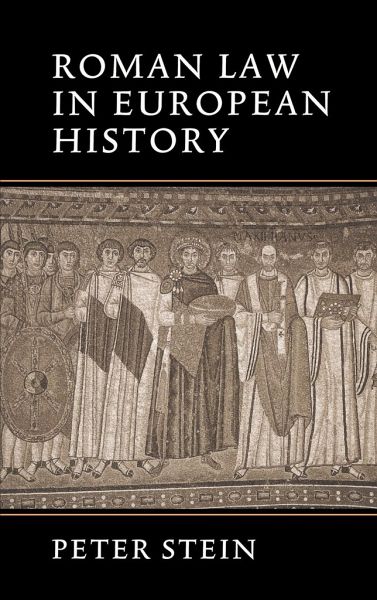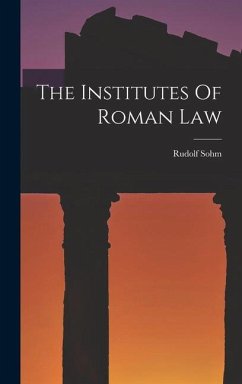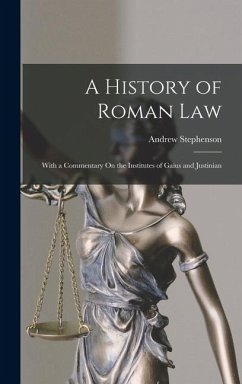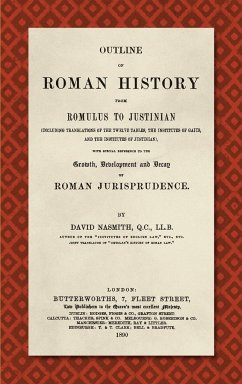
Roman Law in European History
Versandkostenfrei!
Versandfertig in 1-2 Wochen
110,99 €
inkl. MwSt.
Weitere Ausgaben:

PAYBACK Punkte
55 °P sammeln!
Roman law has had a huge impact on European legal and political thought. Peter Stein, one of the world's leading legal historians, explains in this masterly short study how this came to be. He assesses the impact of Roman law in the ancient world, and its continued unifying influence throughout medieval and modern Europe. Roman Law in European History is unparalleled in depth, lucidity and authority, and should prove of enormous utility for teachers and students (at all levels) of legal history, comparative law and European Studies.














